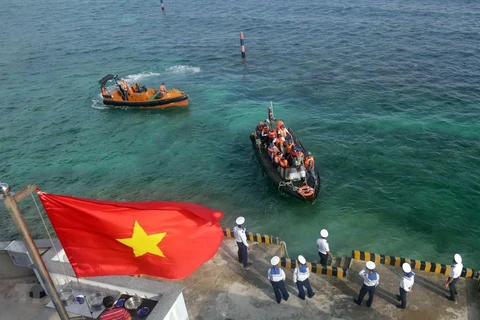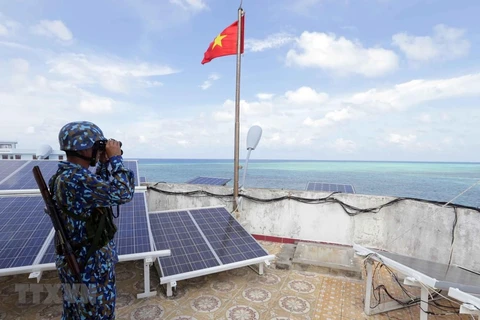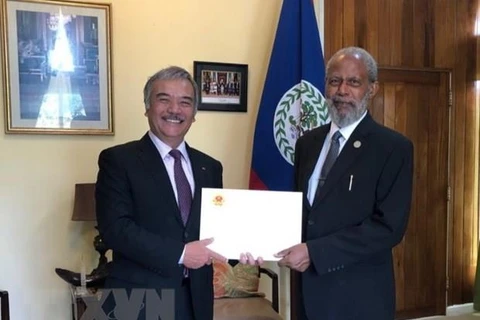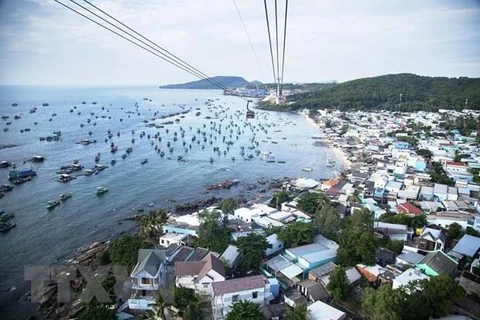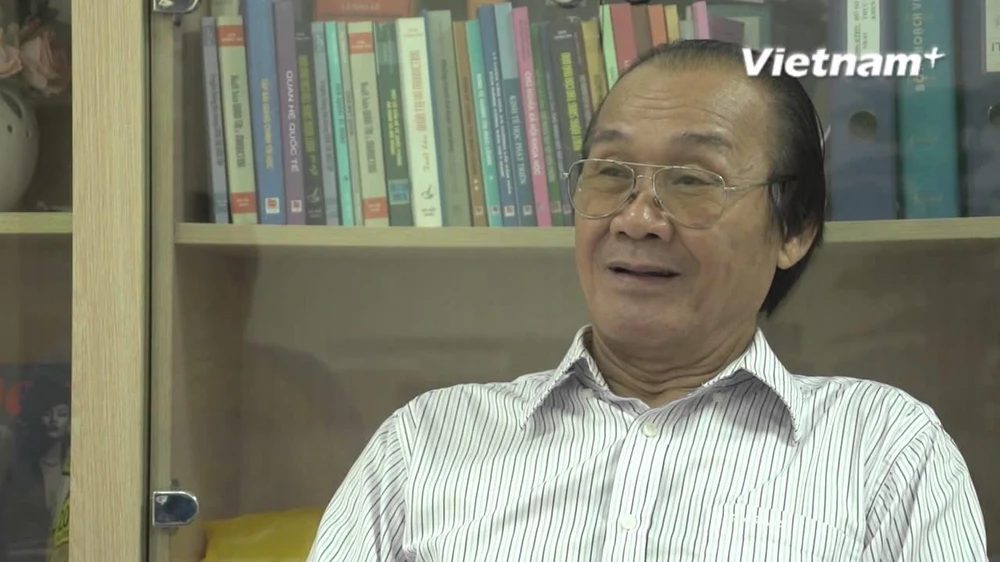
Hanoi (VNA) – As a country with a coastline of more than 3,260km and thousands of islands, including Hoang Sa (Paracel) and Truong Sa (Spratly) archipelagos, Vietnam is aware of the importance of the sea and has always upheld the principles and goals of the 1982 United Nations Convention on the Law of the Sea (UNCLOS 1982) while contributing to the implementation of the convention.
Former chief of the Government Border Committee Tran Cong Truc, the first person in Asia to translate the UNCLOS 1982, said the National Assembly of Vietnam issued a resolution on June 23, 1994 ratifying the convention.
Through the application of this convention, Vietnam has achieved a lot of success in both the legal aspect and the exercise and protection of its rights and interests in the East Sea.
From the early days the convention was drafted, Vietnam had sent experts and representatives joining this process.
Before the UNCLOS was born, Vietnam applied the relevant provisions of international law to develop and issue domestic legal documents on the sea, including the Government’s declaration on Vietnamese waters.
Following the signing of the UNCLOS in Montego Bay, Jamaica in 1982, Vietnam applied and announced the baseline used to calculate the width of the Vietnamese continental shelf.
With the ratification of the UNCLOS on June 23, 1994, Vietnam proved itself a responsible and active member.
To specify the contents of the UNCLOS 1982, in 2012, Vietnam passed the Law of the Sea of Vietnam, which was built based entirely on the principles and content of the convention with more specific regulations in accordance with the situation, policy and marine strategy of Vietnam.
The legalisation of the UNCLOS 1982 by the Law of the Sea 2012 helped Vietnam have a firm legal foundation for handling all maritime disputes and activities on waters of Vietnam’s sovereignty, sovereign rights and jurisdiction in the East Sea.
Evaluating Vietnam’s endeavours in implementing the UNCLOS and promoting international cooperation at sea, Pham Lan Dung, Secretary General of Vietnam Society of International Law (VSIL), said Vietnam has improved the national legal system based on stipulations of UNCLOS 1982 and issued more than 10 relevant laws and legal documents, especially the Law of the Sea 2012 – which was built in harmony with UNCLOS regulations.
Vietnam has made efforts to conduct maritime delimitation with countries in the region based on the principles of the convention, Dung said, adding that this is an important part of the convention, contributing to the creation of a peaceful and stable environment among nations, ensuring countries have maritime zones prescribed by the convention and can conduct exploitation and preservation of natural resources in those waters.
Dung added that Vietnam has always seriously implemented the rights and obligations of coastal countries according to the convention. In 2009, Vietnam completed a report on defining the outer limits of the continental shelf of Vietnam in the East Sea and submitted it to the UN Commission on the Limits of the Continental Shelf.
Vietnam also established a national committee on search and rescue in 1996 and is a member of the International Convention on Maritime Search and Rescue.
The Southeast Asian country has actively participated in activities within the framework of international mechanisms established under the convention. Vietnam is a member of the International Seabed Authority (ISA) and was elected vice president of the general assembly of the ISA.
Vietnam has also engaged in building regional and international legal documents related to seas, such as the International Maritime Satellite Organization (INMARSAT) and the Global Maritime Distress Safety System (GMDSS).
According to Dung, the application of international law to address marine disputes between countries is a civilised solution in line with the rule of law, ensuring equal opportunities for all countries before law.
When disputes arise, negotiation is the first measure that countries should do according to international law and UNCLOS 1982, she said.-VNA
VNA
